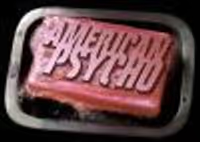HBO's "The Normal Heart": Your Thoughts
#150HBO's 'The Normal Heart': Your Thoughts
Posted: 5/29/14 at 9:36pmI thought Ned put the record on.
FindingNamo
Broadway Legend Joined: 7/22/03
#151HBO's 'The Normal Heart': Your Thoughts
Posted: 5/29/14 at 9:38pm
"She said 'Don't scratch my Mathis'. Perhaps it was an act of mercy that Ned held his tongue about what surely he thought was that great coward Johnny Mathis?
Also, he put on the Stones for his first date with Felix. That had to be totally made up for the movie. Can you imagine Larry ever putting on the Stones in real life?
#152HBO's 'The Normal Heart': Your Thoughts
Posted: 5/29/14 at 9:39pm
Larry Kramer probably would have, Namo. LOL. But I think the scene is about two grizzled veterans escaping the "war" for a moment, so I wasn't bothered that Ned didn't stop to trash Johnny Mathis.
(BTW, I think Mathis had long had one foot out of the closet door. A friend worked one of Mathis' concerts in the early 1960s and says Mathis not only arrived with his then boyfriend, but proceeded to sing all the love songs directly to the beau.)
FindingNamo
Broadway Legend Joined: 7/22/03
#153HBO's 'The Normal Heart': Your Thoughts
Posted: 5/29/14 at 9:43pm
I remember when he came out very casually in a People magazine interview. It was in a sentence split over two pages. I hit the "him" pronoun and flipped back to reread the first half of the sentence.
#154HBO's 'The Normal Heart': Your Thoughts
Posted: 5/29/14 at 11:27pm
Here's a pre-AIDS 1978 People Magazine article in which Johnny Mathis "outs" himself as volunteering for something called the "LA Health Clinic for Gay People" but says he is not in a relationship and avoids all pronouns.
PEOPLE: October 23, 1978 Chances Were That Johnny Mathis Would Never Have a No. 1 Hit—but Wonderful, Wonderful, He Did It
FindingNamo
Broadway Legend Joined: 7/22/03
#155HBO's 'The Normal Heart': Your Thoughts
Posted: 5/29/14 at 11:34pm
His closetedness was killing those gay people at the clinic!!
All my love,
LK
#156HBO's 'The Normal Heart': Your Thoughts
Posted: 5/30/14 at 8:48am
I don't mean this to sound like a lecture but actors don't "Play emotions" what they play are "actions" working towards "objectives". Emotions are a natural product of what action they are playing.
I think with the dance scene, Julia Roberts character really wanted to experience DANCING with a Man. But the Mark Ruffalo character is unable to stop complaining about "his cause" for five minutes to give her what she wants. She thought he was going to stop talking about AIDS and take the five minutes to deal with her as a woman... even though he was a Gay man... she wanted to DANCE! To get away from her problems for five minutes. She made herself VERY, VERY Vulnerable to his character and he didn't have a clue as to what she really needed at that moment. When she realized he was incapable of sharing that moment with her, she didn't want to be used as a prop and she demanded he put her down.
That was my take. They had two different objectives for that scene, as two people often do in life.
FindingNamo
Broadway Legend Joined: 7/22/03
#157HBO's 'The Normal Heart': Your Thoughts
Posted: 5/30/14 at 9:40am
"But the Mark Ruffalo character is unable to stop complaining about "his cause" for five minutes to give her what she wants."
Except she has spent the better part of her interactions with him haranguing him about what he and his "side" were doing and whatever it was, it was not enough.
#158HBO's 'The Normal Heart': Your Thoughts
Posted: 5/30/14 at 9:44amYes. this is true. but characters are very layered. at that moment she wants to dance. she feels safe with him. I think she admires his humanity. He is the one that brings up dancing but he doesn't follow through. He is incapable of it. He has her in his arms and instead of taking that moment to DANCE with her... he starts talking about AIDS again. She wanted... she expected... to feel like she was dancing. She thought he was going to be able to give that to her and he is unable.
#159HBO's 'The Normal Heart': Your Thoughts
Posted: 5/30/14 at 9:55am
Think what would be going through your own head if Mark Ruffalo were to start dancing with you. That is what Julia Roberts was "playing" at that moment.
Whether or not that makes logical sense for the character as written is a valid question but not for the actress--for the writer and the director.
She played it as written and directed, but it was probably a wrongheaded move on the part of Kramer and Murphy to include it, probably just an attempt on their part (probably Murphy's) to take momentary advantage of a hunky leading man and an actress with great experience as a leading lady in romantic comedies.
Thankfully, it lasts only a moment and there are few if any other, similar moments of cheap-and-easy sentiment in the movie.
All that said, I loved the dancing scene.
FindingNamo
Broadway Legend Joined: 7/22/03
#160HBO's 'The Normal Heart': Your Thoughts
Posted: 5/30/14 at 10:03am
For me, it's hard to separate what I 'know" about the characters from what the movie showed about the characters from the play. (Not to mention what I know about the NY Native articles that Larry was writing at the time, in which Larry called gay men who were having sex "murderers" -- poor Mickey was reacting to that even though the words Ned typed out never included anything like that.) From the stage production, I know the Doctor was furious at Ned for "taking a LOVER!!!".
So all this knowledge about the fictional characters and stark memories of the essays Larry was really writing, have become something of a jumble in my brain. If there has to be a dancing scene, it belongs in the play. But I don't think there has to be one.
FindingNamo
Broadway Legend Joined: 7/22/03
#161HBO's 'The Normal Heart': Your Thoughts
Posted: 5/30/14 at 10:32am
Here's an article called "Seven New Yorkers Recall the Early Days of the AIDS Epidemic." I feel like I've been reliving those awful years since I saw Taylor Mac's "The Lily's Revenge" immediately before The Normal Heart on Broadway immediately before "How to Survive a Plague" followed by a local production of The Normal Heart and then the movie this week.
But distance does give a new perspective.
link
#162HBO's 'The Normal Heart': Your Thoughts
Posted: 5/30/14 at 10:36am
Anyone interested in this might also like to watch a documentary about people who were on the front lines of the epidemic in San Francisco called "We Were Here," which was also really well done.
http://wewereherefilm.com
FindingNamo
Broadway Legend Joined: 7/22/03
#163HBO's 'The Normal Heart': Your Thoughts
Posted: 5/30/14 at 10:45am
^^ Like button
#164HBO's 'The Normal Heart': Your Thoughts
Posted: 5/30/14 at 12:38pm
I didn't see enough of The Normal Heart to have an opinion about this article, but I thought I'd share it anyway (it's been going around in my friend/acquaintance circles).
http://www.thestylecon.com/2014/05/29/hate-normal-heart/
#165HBO's 'The Normal Heart': Your Thoughts
Posted: 5/30/14 at 1:23pm
What a stupid article. She missed the point entirely.
#166HBO's 'The Normal Heart': Your Thoughts
Posted: 5/30/14 at 1:43pmWow! Reading that article the words Totally Clueless comes to mind.
#167HBO's 'The Normal Heart': Your Thoughts
Posted: 5/30/14 at 1:49pm
Lizzie--tell your friend to read this.
And then read it again. And then read it again. And then read it again.
===
"Once upon a time there was a little boy, who always wanted to love another little boy. One day he finally found that love, and it was wonderful. I’m supposed to use gloves, I’m supposed to do this, I’m supposed to do that, I’m supposed to not kiss him. I’m not supposed to be only 45 years old, and taking care of a 35 year old young man who’s a hundred years old and dying. Em calls it a seesaw – he’s fine, he gets sick, he gets better, he gets sicker. He’s afraid I’ll leave him. I told him I wouldn’t leave him, that I never for one second would think of leaving him, but he doesn’t believe me. It’s hard to believe in much these days. But we must never stop believing in each other.
"I’m a mess. That’s what I am. You cry and you cry until you think you can’t cry anymore, and then you cry some more. Not only for yourself or Felix, but for all the little boys, who finally found their other little boys they wanted all their lives, now that we’re men."
#168HBO's 'The Normal Heart': Your Thoughts
Posted: 5/30/14 at 2:29pm
Ugh...that article reeks of 'I'm gonna make a name for myself by willfully misreading this film and then railing about it! Do you KNOW the number of hits I'm going to get???'
And, alas, I clicked. I'm mad at myself for that.
#169HBO's 'The Normal Heart': Your Thoughts
Posted: 5/30/14 at 2:46pmYes perhaps you are right Robbie.
#170HBO's 'The Normal Heart': Your Thoughts
Posted: 5/30/14 at 2:54pmSadly that's only one of several articles I've seen making a similar argument, and similarly completely missing the point.
#171HBO's 'The Normal Heart': Your Thoughts
Posted: 5/30/14 at 3:09pmThankfully, her use of cisgender was enough of a clue for me to stop reading, but it was still off way before that.
#172HBO's 'The Normal Heart': Your Thoughts
Posted: 5/30/14 at 3:16pmThe author of the article wants one story to be all stories. But what she doesn't understand about art is that only through the specific can you find universality. She should stick to queer theory where she can chase her tail round and round for hours.
#173HBO's 'The Normal Heart': Your Thoughts
Posted: 5/30/14 at 3:48pm
I really don't see how the author could think a movie about the handful of men who met in a living room in the West Village to battle a plague noone was paying attention to, ultimitely forming Gay Men's Health crisis, could include everyone. Those are other stories to be told.
As I mentioned before, I applauded the addition of Estelle for the movie. It was not an "All Lesbians hate us!" moment as the author suggests but quite the opposite. It was an aknowledement of the Lesbian involvement which the play itself didn't have. It quite brilliantly opened the story up to a whole new segment of the LBGT community who worked diligently in those early years.
#174HBO's 'The Normal Heart': Your Thoughts
Posted: 5/30/14 at 3:57pm
I think the issue that these writers really ought to be tackling is that there should be films made to tell those other stories -- rather than arguing that The Normal Heart The Movie should have rewritten its own history to include everybody when that's not what it is.
I can't find the link again, but there was a writer who argued that The Normal Heart was guilty of the "erasure" of women, and used (I kid you not) new-case statistics from 2010 to show us that women were excluded from the story.
Videos









